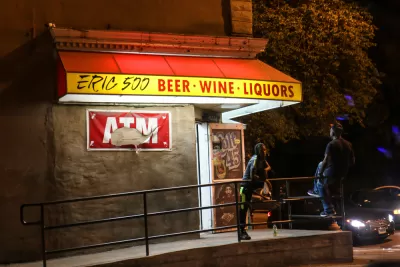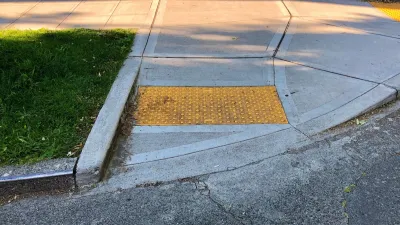A new zoning code in Baltimore will reduce the number of liquor stores in the city in hopes of reducing the violent crime rate. Will there be unintended consequences?

It was at least a decade ago when researchers from Johns Hopkins Bloomberg School of Public Health turned their attention to Baltimore’s effort to revise its decades-old zoning code. Many research papers, meetings, and draft revisions later, the results of the policy change they brought about—a reduction in the number of liquor stores in Baltimore’s residential neighborhoods—will finally take effect on June 5.
Research has shown that there is a definitive link between the number of liquor outlets and a city’s violent crime rate. Will the communities surrounding the closed stores actually experience the desired outcome? That will probably take another few years to determine. Still, the Baltimore story shows how innovative ideas can gradually be translated into real regulations. It also illustrates that even when the desired outcomes occur, members of the community can be negatively affected.
A few store owners have changed their businesses, but many others don’t quite get what’s about to happen to them, says Mario Chang, KAGRO’s president. “There are a lot of mom and pop owners and some of them have been there for 20 years, 30 years. These businesses were their retirement,” says Chang. “They don’t really understand about the closing.” Starting over will be hard for many of them.
FULL STORY: Closing Liquor Stores, Hoping to Gain Public Health

Alabama: Trump Terminates Settlements for Black Communities Harmed By Raw Sewage
Trump deemed the landmark civil rights agreement “illegal DEI and environmental justice policy.”

Study: Maui’s Plan to Convert Vacation Rentals to Long-Term Housing Could Cause Nearly $1 Billion Economic Loss
The plan would reduce visitor accommodation by 25% resulting in 1,900 jobs lost.

Planetizen Federal Action Tracker
A weekly monitor of how Trump’s orders and actions are impacting planners and planning in America.

Waymo Gets Permission to Map SF’s Market Street
If allowed to operate on the traffic-restricted street, Waymo’s autonomous taxis would have a leg up over ride-hailing competitors — and counter the city’s efforts to grow bike and pedestrian on the thoroughfare.

Parklet Symposium Highlights the Success of Shared Spaces
Parklets got a boost during the Covid-19 pandemic, when the concept was translated to outdoor dining programs that offered restaurants a lifeline during the shutdown.

Federal Homelessness Agency Places Entire Staff on Leave
The U.S. Interagency Council on Homelessness is the only federal agency dedicated to preventing and ending homelessness.
Urban Design for Planners 1: Software Tools
This six-course series explores essential urban design concepts using open source software and equips planners with the tools they need to participate fully in the urban design process.
Planning for Universal Design
Learn the tools for implementing Universal Design in planning regulations.
Caltrans
Smith Gee Studio
Institute for Housing and Urban Development Studies (IHS)
City of Grandview
Harvard GSD Executive Education
Toledo-Lucas County Plan Commissions
Salt Lake City
NYU Wagner Graduate School of Public Service





























